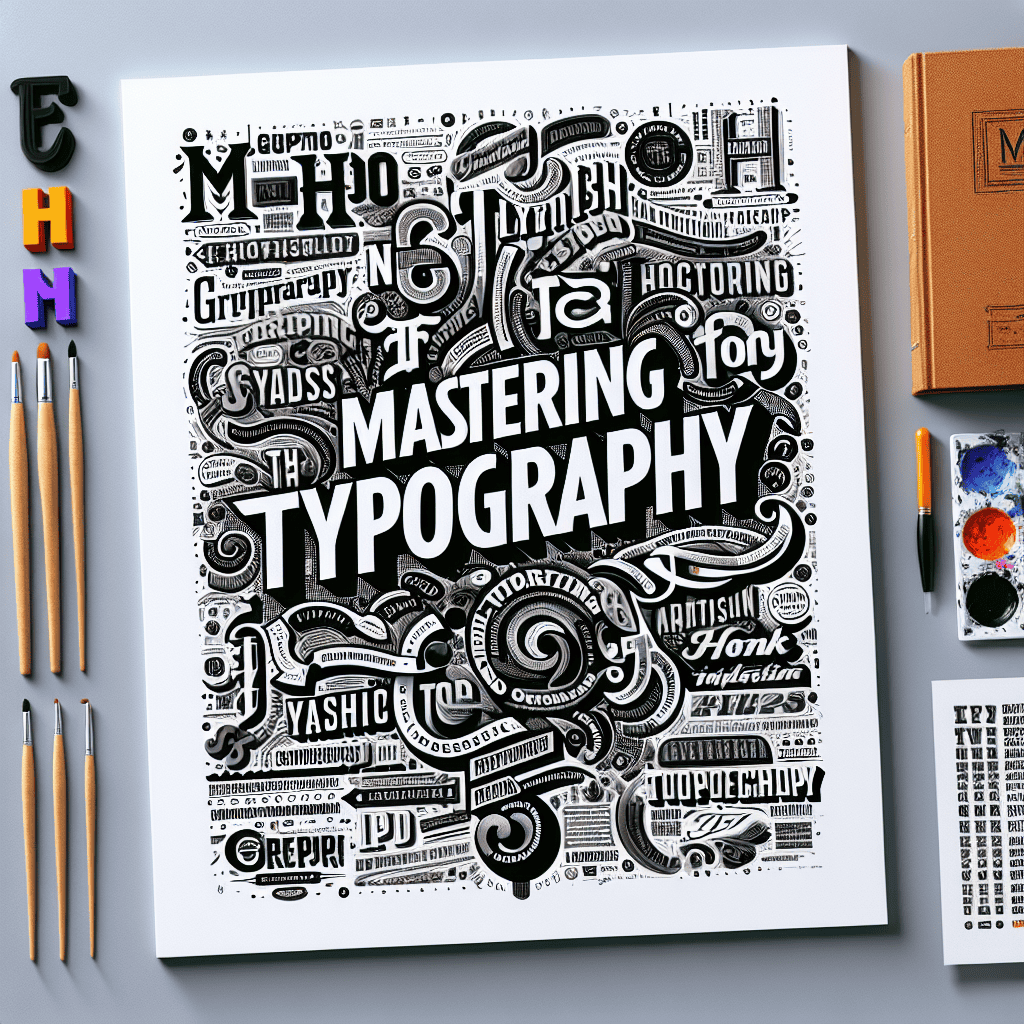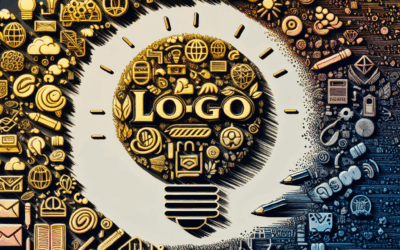Typography is an essential element of design that often goes unnoticed, yet it can significantly influence how your audience perceives your brand. Understanding typography and its effective use can elevate your design projects, making them more coherent, engaging, and visually striking. In this article, we will explore tips for mastering typography to enhance your design projects’ impact.
Understanding Typography: A Brief Overview
Typography isn’t just about selecting a font; it encompasses the style, arrangement, and appearance of text. It plays a pivotal role in communicating your message effectively. From legibility to emotional resonance, the right typography can make all the difference.
The Importance of Choosing the Right Font
Selecting the right font is the first step in effective typography. Different fonts evoke different feelings and responses, and understanding this can aid in conveying your message more compellingly.
Serif vs. Sans-Serif:
Serif fonts, such as Times New Roman, suggest tradition and reliability, making them suitable for formal documents. On the other hand, sans-serif fonts like Arial or Helvetica offer a modern feel, ideal for digital formats.
Tips for Choosing the Right Font
1. Know Your Audience
Understanding your target audience is crucial. If you are designing for a fun, youthful brand, you might opt for a quirky typeface. If your audience is more conservative or professional, a classic serif font may be more appropriate.
2. Limit Your Fonts
While you may be tempted to use multiple fonts for variety, it’s important to limit yourself to two or three font families. This creates a cohesive look and avoids visual clutter, making your design easier to read and more aesthetically pleasing.
The Role of Hierarchy in Typography
Establishing a clear hierarchy in your typography helps guide the reader’s eye and emphasizes the most important elements of your design. Here’s how to achieve that:
1. Use Different Font Sizes
Varying font sizes helps to create a visual hierarchy. For instance, your title should be the largest, with subheadings slightly smaller, and body text standard size. This aids users in navigating the content more intuitively.
2. Employ Different Weights
Using different font weights (bold, regular, light) within the same font family can help differentiate elements without introducing new typefaces. This maintains consistency while enhancing hierarchy.
Color and Typography: The Perfect Pair
Color plays an essential role in typography. The right color can evoke emotions and influence readability. Here’s how to effectively use color in typography:
1. Choose Contrasting Colors
For the best readability, ensure that there’s sufficient contrast between the text and the background. Light text on a dark background or vice versa is ideal.
2. Avoid Overly Vibrant Colors
While saturated colors can be eye-catching, they might also distract from the text’s message. Opt for softer shades for better readability and comfort.
Spacing Matters: Kerning and Leading
Kerning refers to the space between individual characters, while leading is the space between lines of text. Both are crucial for readability.
1. Adjust Kerning for Aesthetic Balance
Proper kerning ensures that the text doesn’t appear crowded or too spaced out. Adjusting the space between specific characters can create a more harmonious look.
2. Set Appropriate Leading for Readability
A good rule of thumb for leading is to set it at 1.2 to 1.5 times the font size. This provides enough space for each line while maintaining a cohesive block of text.
Emphasizing Your Message: Using Contrast and Emphasis
To draw attention to specific parts of your text, employing contrast and emphasis is effective:
1. Use Bold or Italics
Bold and italicized text can emphasize crucial sections or quotes within your content. However, use these sparingly to maintain their impact.
2. Incorporate Color and Size Variations
Changing the color or size of certain words can also serve to highlight key messages. Just ensure these changes serve a purpose rather than divert attention from your main message.
Consistency is Key
Maintaining consistency across your design helps establish a unified brand identity. Here’s how to ensure this:
1. Create a Style Guide
Drafting a style guide that outlines your chosen typography—fonts, sizes, weights, colors—helps keep your designs consistent. This is particularly useful for teams working on multiple projects.
2. Use Templates for Repetitive Designs
For projects involving multiple pages, like brochures or websites, creating templates can save time and ensure consistency.
Conclusion: Elevate Your Design Through Effective Typography
Mastering typography is essential for effective design. By understanding the nuances of font selection, hierarchy, spacing, and color, you can significantly enhance your work’s visual appeal and communication clarity. Remember, every element of typography should serve a purpose and contribute to the overall user experience. As you put these tips into practice, you’ll not only elevate your designs but also strengthen your brand’s voice and message.
By embracing the art and science of typography, you will take your design projects to new heights, captivating your audience while clearly conveying your intended message. So, whether you’re designing a simple flyer or an extensive website, let typography be the powerful tool that brings your vision to life.
USA Marketing Pros is your reliable partner for effective web design, SEO, and digital marketing services. Based in Arlington, VA, we proudly serve businesses across Northern Virginia and the wider Washington, DC area. Reach out to us today to see how we can help your business grow at (202) 888-5895 or visit us at 701 12th St S, Arlington, VA 22202.
Searching for Affordable Business Logo Design? Check out our Logo Design Service
Check out all our Digital Marketing Services
Schedule a Logo Design Strategy Call




0 Comments